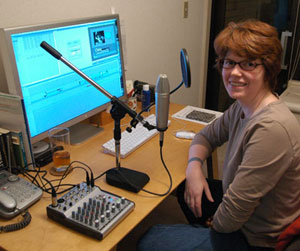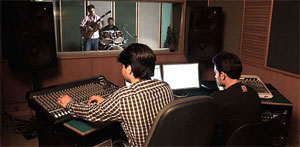Sound Operator (Radio/Film/Television)
Tasks & duties

Sound operators may do all or some of the following:
-
discuss requirements with the client
-
organise recording sessions
-
prepare areas such as radio booths and television studios for recording
-
choose and set up the microphones
-
listen closely to the sounds that will be recorded and adjust the sound quality to the correct level
-
edit the recording and make adjustments if necessary
-
report equipment faults and ensure that they are repaired
-
mix sounds on a mixing desk
-
add sound effects
-
make sound recordings outside on location
Skills & knowledge

Sound operators need to have:
-
knowledge of sound, music and acoustics
-
technical skills to operate sound recording equipment and computer production equipment
-
problem-solving skills
-
decision-making ability
-
good communication skills, as they work closely with others
Sound operators who work on a freelance basis need to have good time management and organisational skills to organise their work schedules.
Entry requirements
There are no specific entry requirements to become a sound operator. However, some experience and demonstrated ability in sound operating is preferred.
Secondary education
A tertiary entrance qualification is required to enter tertiary training and useful subjects include English, maths and physics.
Tertiary education
A tertiary qualification in a relevant field, such as sound engineering or television, video or film production is useful.
Training on the job
Skills are gained on the job. Sound operators may attend training courses in sound operating.
Useful experience
Useful experience includes sound operating with recordings, television or radio work, electronics and sound engineering.
Related courses
Audio Visual Studies
Journalism, Communication and Media Studies
For more information, please refer to Career Services.
Document Actions
